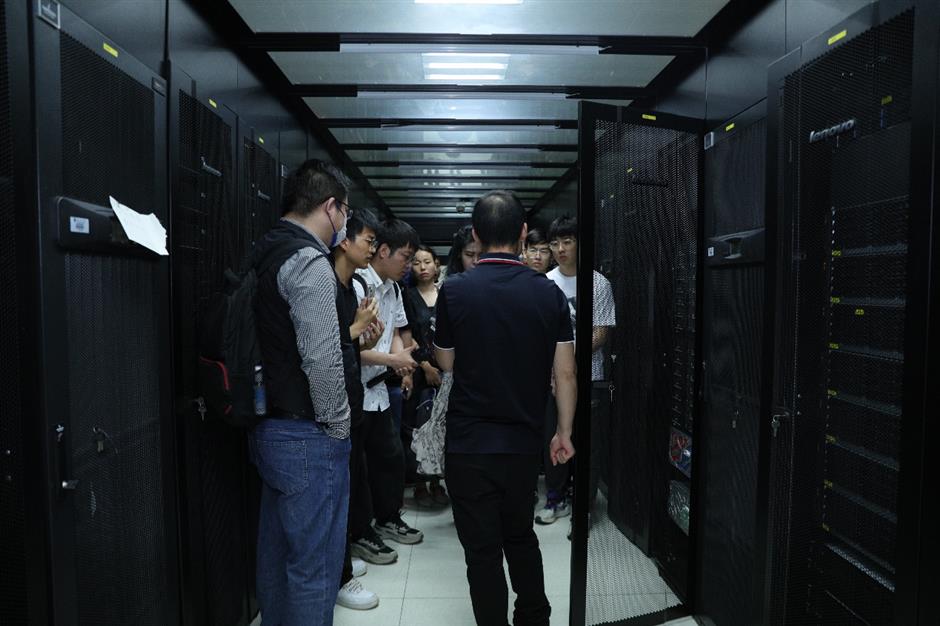Advanced HPC devices fuel scientific innovation in China

People visit the HPC center of Nanjing University, with devices offered by Lenovo.
China's capacity for high-performance computing, or HPC, widely adopted in universities and researchers to fuel scientific research and innovation, has already reached top-class level globally, industry officials told a forum.
HPC capabilities, powered by tech giants like Lenovo, represent a country's level of technology development.
At present, China has achieved high-level development in HPC, with the average capacity of China's Top 100 HPC 30 percent faster than the average level of the Top 500 globally.
China's HPC has reached first-class grade in the world, experts told an university HPC capacity forum in Nanjing, capital of neighboring Jiangsu Province.
In an increasingly fierce uphill race of exascale computing worldwide, more Chinese supercomputers are making the world's Top 500 list, analysts pointed out.
HPC has become an essential infrastructure for advanced research in basic science, especially in the fields of climate change, advanced energy, astrophysics, life science, materials science and other disciplines that require intensive computing and massive data processing. With the support of HPC, researchers can better utilize their ingenuity and achieve more innovative breakthroughs.
Lenovo, the world's top HPC vendor now, offers HPC capabilities for many universities and research organizations nationwide, supporting national ecosystem development with specific designs on storage, software and cooling systems.
Currently, its HPC devices are being used at Nanjing University. Meanwhile, its HPC devices have been installed at Shanghai Jiao Tong University, donated by alumnus Yang Yuanqing, chairman of Lenovo.
It fits well with Lenovo's strategy to develop with a "second growth line," which means developing non-PC (personal computer) businesses.
Amid a decline in PC market sales, Lenovo's non-PC business accounts for almost 40 percent of its total revenue, with HPC and storage and software being the fastest-growing sectors.















